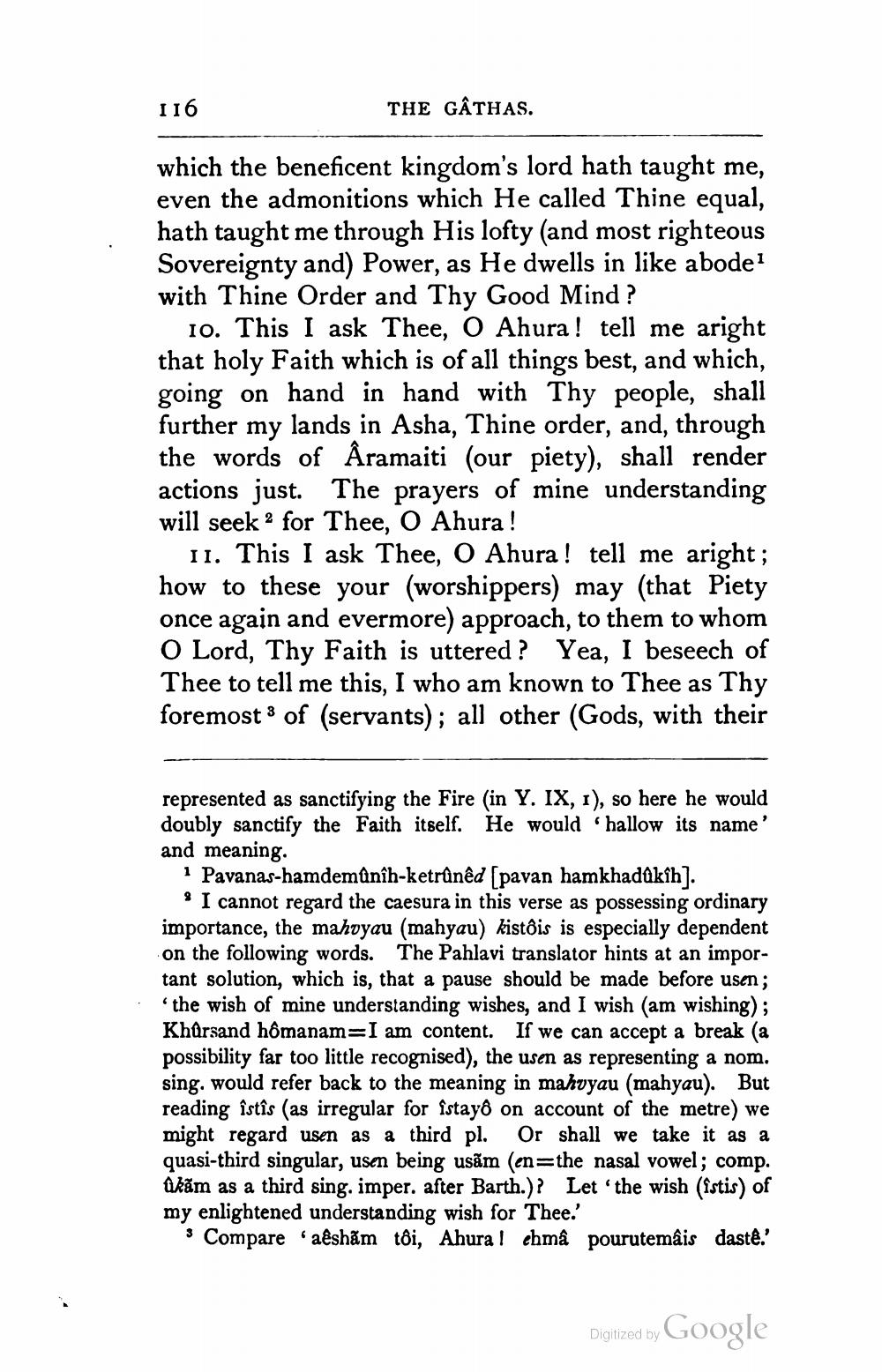________________
116
THE GÂTHAS.
which the beneficent kingdom's lord hath taught me, even the admonitions which He called Thine equal, hath taught me through His lofty (and most righteous Sovereignty and) Power, as He dwells in like abode 1 with Thine Order and Thy Good Mind ?
10. This I ask Thee, O Ahura! tell me aright that holy Faith which is of all things best, and which, going on hand in hand with Thy people, shall further my lands in Asha, Thine order, and, through the words of ramaiti (our piety), shall render actions just. The prayers of mine understanding will seek 2 for Thee, O Ahura!
11. This I ask Thee, O Ahura! tell me aright; how to these your (worshippers) may (that Piety once again and evermore) approach, to them to whom O Lord, Thy Faith is uttered? Yea, I beseech of Thee to tell me this, I who am known to Thee as Thy foremost 3 of (servants); all other (Gods, with their
represented as sanctifying the Fire (in Y. IX, 1), so here he would doubly sanctify the Faith itself. He would hallow its name' and meaning.
i Pavanas-hamdemûnîh-ketrûnêd (pavan hamkhadůkih].
: I cannot regard the caesura in this verse as possessing ordinary importance, the mahoyau (mahyau) kistôis is especially dependent on the following words. The Pahlavi translator hints at an important solution, which is, that a pause should be made before usen;
the wish of mine understanding wishes, and I wish (am wishing); Khursand hômanam=I am content. If we can accept a break (a possibility far too little recognised), the usen as representing a nom. sing. would refer back to the meaning in mahvyau (mahyau). But reading îstîs (as irregular for îstayô on account of the metre) we might regard usen as a third pl. Or shall we take it as a quasi-third singular, usen being usãm (en=the nasal vowel; comp. akām as a third sing. imper. after Barth.)? Let the wish (istis) of my enlightened understanding wish for Thee.
* Compare aeshăm tôi, Ahura ! ehma pourutemùis dastế.
Digitized by
Digitized by Google




